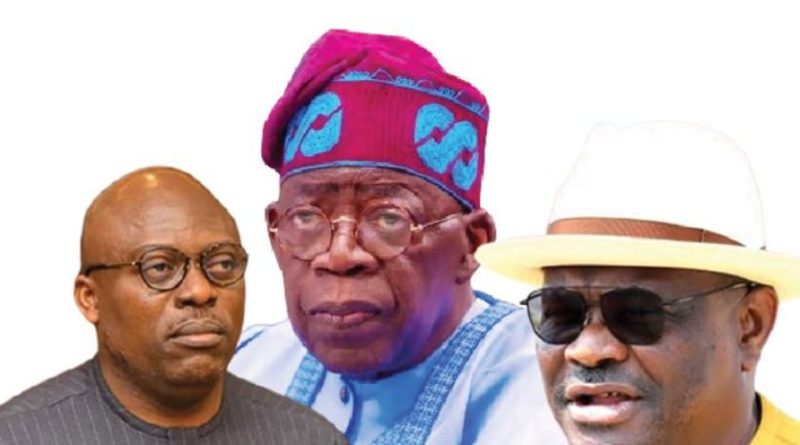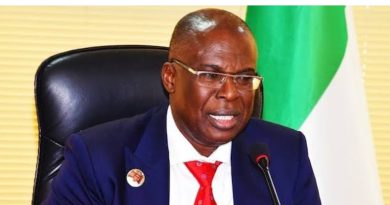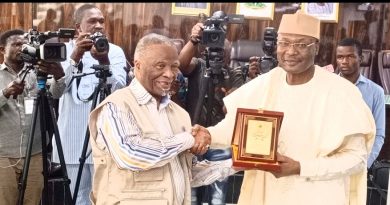SOE IN RIVERS
By Nick Dazang
The simmering contention between the Executive and Legislature in Rivers State inevitably boiled over. It resulted in the declaration of a state of emergency on Tuesday, 18th, 2025, by President Bola Ahmed Tinubu on that embattled state.
The President anchored his declaration of a state of emergency on Rivers State on two major premises, namely: that “both the House and the governor have not been able to work together” and that “the latest security reports available to me show that between yesterday(Monday 17th) and today(Tuesday 18th) there have been disturbing incidents of vandalization of pipelines by some militant without the governor taking any action to curtail them”.
In declaring a state of emergency, the President correctly relied upon section 305 of the Constitution of the Federal Republic of Nigeria, 1999(as amended). While it is his prerogative to do so under the canopy of that section, the President clearly overreached himself by suspending both the Governor and members of the State House of Assembly.
It is valid that other stakeholders, including the President, had attempted to mediate the crisis in Rivers State. In fact, a week before the declaration of the state of emergency, leaders of Pan Niger Delta Forum(PANDEF, had approached the President over the crisis. The President had advised the parties to the crisis to be undergirded by the rule of law and the recent Supreme Court judgement on the crisis.
To avert anarchy, it was judicious that parties involved in the crisis be guided by the Supreme Court judgement as enjoined by the President. The only challenge is that the Supreme Court judgement at issue cannily showed fidelity to the President’s prior but skewed brokerage of the crisis. His advice was therefore self-serving.
It is curious that whereas the Governor stated that he was prepared to implement the judgement of the Supreme Court to the letter, and he proceeded to:1) summon a meeting between him and members of the State House of Assembly; and 2) he attempted to present the Appropriation Bill before the House of Assembly, in the full glare of the media, he was shunned by it.
Even more curious is that the President, who had counseled that due deference be given to the rule of law and the Supreme Court judgement, did little to prevail on his political ally, Nyesom Wike, to prod his protégés in the State House of Assembly to reciprocate the Governor’s generous overtures. If the State House of Assembly was not being truculent, goaded by its well publicized agenda of impeaching the Governor at the behest of their puppet master, perhaps the tension we saw in Rivers State, which was so thick, you could cut with a knife, would have been drastically reduced. Neither would aggrieved persons have exploded any oil pipeline, thereby imperiling our mono-cultural economy.
Could it be that in declaring a state of emergency, the President, out of desperation to secure the oil industry, pressed the panic button? Could it be that in declaring a state of emergency, he was helping his ally, and by extension himself, with a view to capturing Rivers State in 2027?
Whatever the answers to these posers may be, the National Assembly did not help our democracy. Neither did it help its own sullied image. The Legislative branch, which ought to be a co-equal with the Executive branch, and which ought to serve as a check on its excesses, proved, yet again, to be craven and compromised.
The Legislative branch not only gave a ringing endorsement of the state of emergency, as declared by the President, it was deafeningly silent in protesting the suspension of democratic institutions as exemplified by the Governor and House of Assembly of Rivers State. Its fawning propensities at the Executive branch emboldened the President who swore in the Sole Administrator, Vice Admiral Ibok-Ete Ibas(Rtd), in lieu of the Legislature’s approval of the declaration.
If the Legislative branch abdicated its responsibility, because some water allegedly passed under the bridge, the compelling questions to further ask are: Now that a state of emergency has been declared, what will be the day after? Will there be a happy ending to this sad saga? Will the warring parties come together or work in tandem at the expiration of this state of emergency?
The prospects for a happy ending and an enduring reconciliation must be bleak to any unbiased observer. Unless the cavalier instigator of this crisis is brought to heel, the crisis will persist. Unfortunately, from the President’s body language, his biased mediation prior to the declaration of a state of emergency and his pussyfooting in reigning in his political ally, the possibilities may be non-existent.
This is of course, unless the President transforms and assumes the role of a statesman in this crisis. Or he refuses to view the crisis through the prism of his ambition for a second term. May he summon the courage and the will.
Photo Credit: The Punch




